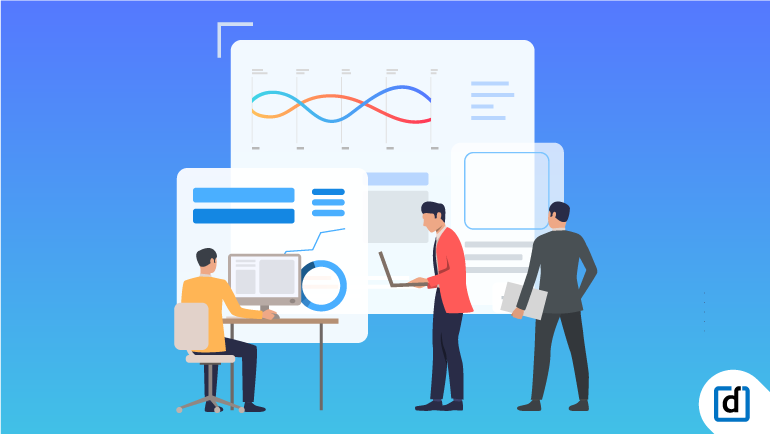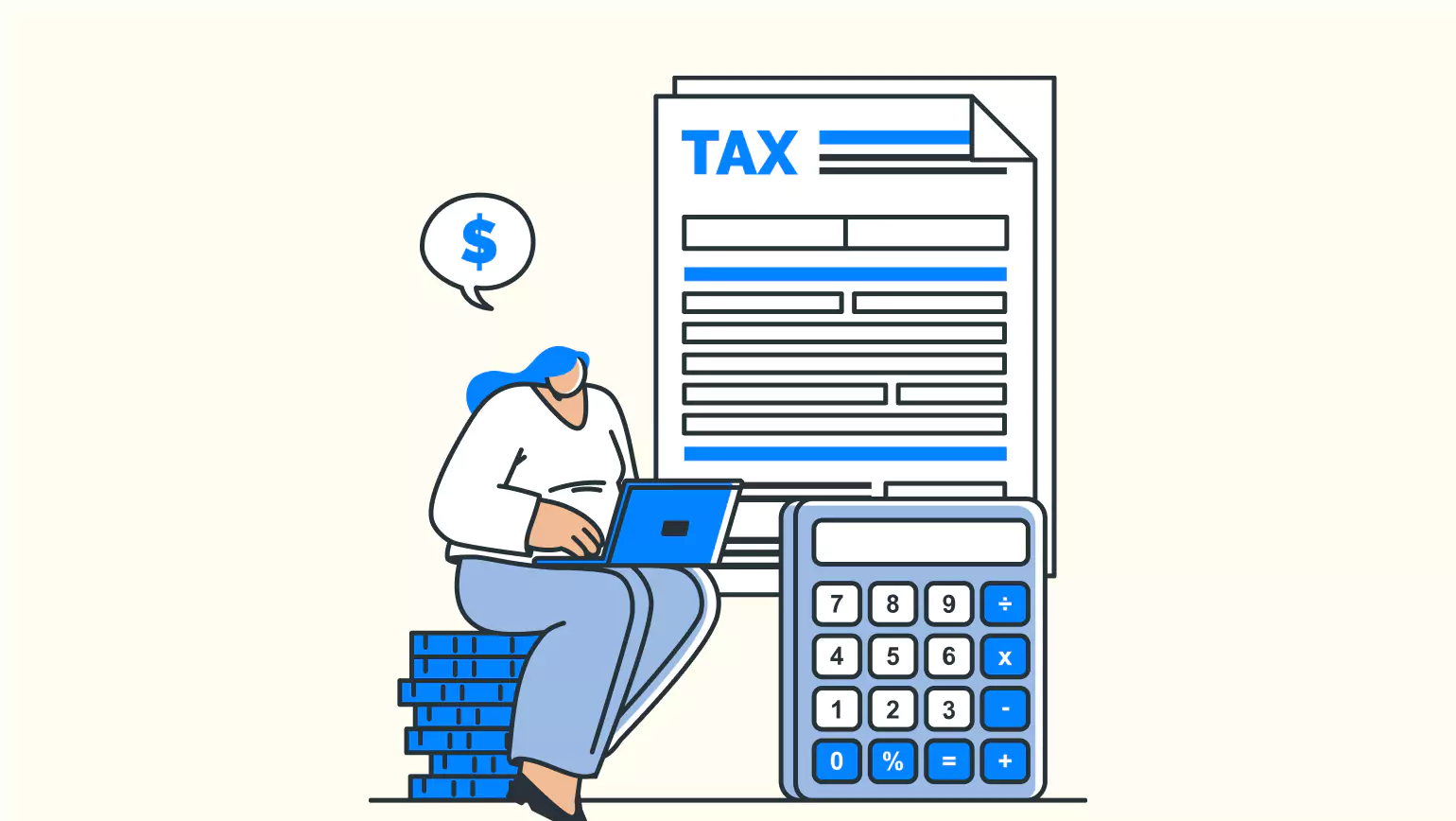In the Philippines, a strong HR department is essential for a company's success. They play a multi-faceted role, acting as both the backbone of the workforce and a strategic partner.
Staying updated with the latest trends and adopting effective strategies is crucial for organizations to remain competitive and attract top talent in the dynamic Philippine market. By embracing innovation, implementing best practices, and prioritizing employee well-being, organizations can create an organizational culture that nurtures growth, fosters innovation, and drives sustainable success in the Philippines.
In this blog, we’ll dig deeper into the best HR practices followed in the Philippines.
Overview of HR Practices in The Philippines
The HR landscape in the Philippines is characterized by a dynamic mix of traditional practices and emerging trends, reflecting the country's diverse cultural and economic landscape. HR professionals drive organizational growth, manage talent, and ensure labor laws and statutory compliance.
In recent years, there has been a growing emphasis on employee engagement, workplace diversity, and digital transformation in HR practices. Organizations increasingly recognize the importance of creating inclusive work environments, fostering a culture of continuous learning, and leveraging technology to streamline HR processes.
Despite these advancements, HR professionals in the Philippines face several challenges. Here are a few of them:
Talent Acquisition and Retention
The competitive job market in the Philippines challenges HR professionals in attracting and retaining top talent, particularly in industries with high demand for specialized skills.
Compliance with Labor Laws and Regulations
HR professionals must navigate complex labor laws and regulations, including minimum wage requirements, employee benefits, and labor union regulations, while ensuring compliance and balancing organizational goals and employee needs.
Adapting to Remote Work
The COVID-19 pandemic has accelerated the adoption of remote work arrangements, presenting challenges for HR professionals in managing remote teams, maintaining productivity, and addressing emerging HR issues in a virtual environment.
Mental Health Support
With the increased focus on employee well-being, HR professionals are tasked with providing mental health support and resources to employees, addressing stress, burnout, and mental health challenges exacerbated by the pandemic and remote work arrangements.
Crisis Management
HR professionals must develop and implement crisis management strategies to address unforeseen challenges such as natural disasters, political instability, or health crises, ensuring business continuity and employee safety.
Workplace Diversity and Inclusion
Creating inclusive work environments and promoting diversity remains challenging for HR professionals, requiring efforts to address biases, promote equal opportunities, and foster a culture of belonging among employees of diverse backgrounds.
Learn More: 10 Best Practices for Successful HR Tech Implementation
Emerging Trends in HR Practices
Remote Work and Flexible Working Arrangements
The COVID-19 pandemic has accelerated the adoption of remote work and flexible working arrangements in the Philippines. HR practices are evolving to support remote teams, with organizations implementing policies and technologies to facilitate remote collaboration, communication, and productivity.
Flexible work schedules and telecommuting options have become integral parts of HR strategies, enabling organizations to attract and retain talent while promoting work-life balance.
Diversity, Equity, and Inclusion (DEI)
There is a growing emphasis on diversity, equity, and inclusion (DEI) in HR practices in the Philippines. Organizations prioritize DEI initiatives to create inclusive work environments, address biases, and promote equal employee opportunities.
HR professionals are implementing diversity training programs, revising hiring practices, and fostering a culture of belonging to ensure that employees of diverse backgrounds feel valued and supported in the workplace.
Employee Well-being and Mental Health Support
Employee well-being and mental health support have become top priorities for HR professionals in the Philippines. With the pandemic's impact on mental health, organizations are implementing initiatives to support employee well-being, including mental health awareness programs, counseling services, and flexible work arrangements. HR practices are evolving to prioritize employee health and wellness, recognizing the importance of fostering a supportive and resilient workforce.
Technology Integration in HR Processes
Technology integration is reshaping HR practices in the Philippines, with organizations leveraging digital tools and platforms to streamline HR processes and enhance efficiency. HR professionals are adopting cloud-based HRIS platforms, AI-driven analytics, and automated HR solutions to manage recruitment, onboarding, performance management, and employee engagement effectively.
Technology integration allows HR professionals to optimize workflows, improve data accuracy, and provide a seamless employee experience, positioning organizations for success in the digital age.
Strategies for Effective HR Management
Recruitment and Talent Acquisition
Implement targeted recruitment strategies to attract top talent, including leveraging social media platforms, attending job fairs, and partnering with educational institutions.
Develop comprehensive job descriptions and candidate profiles to ensure alignment between job requirements and candidate qualifications.
Foster employer branding initiatives to enhance the organization's reputation as an employer of choice, highlighting its values, culture, and employee benefits.
Employee Engagement and Retention
Cultivate a positive work culture through regular communication, recognition programs, and employee feedback mechanisms.
Offer competitive compensation and benefits packages, including career growth and development opportunities.
Conduct regular employee engagement surveys to assess satisfaction levels and identify areas for improvement, then implement action plans based on feedback.
Performance Management and Feedback
Establish clear performance expectations and goals for employees, providing regular feedback and coaching to support their development.
Implement performance review processes that are fair, transparent, and focused on growth and improvement.
Encourage ongoing dialogue between managers and employees to address performance issues promptly and facilitate professional growth.
Learning and Development Initiatives
Develop a culture of continuous learning by offering training programs, workshops, and mentorship opportunities.
Provide access to online learning platforms and resources to support employee skill development and career advancement.
Align learning and development initiatives with organizational goals and employee career aspirations to maximize impact and engagement.
HR Analytics and Data-driven Decision Making
Utilize HR analytics tools to track and analyze key metrics, such as turnover rates, employee engagement scores, and training effectiveness.
Leverage data insights to identify trends, patterns, and areas for improvement in HR processes and practices.
Make data-driven decisions to optimize recruitment strategies, improve employee retention, and enhance organizational performance.
Legal and Regulatory Considerations
In the Philippines, HR professionals must navigate a complex regulatory landscape encompassing various labor laws, employee benefits, and compliance requirements to ensure adherence to legal standards and promote a fair and equitable workplace environment.
Labor Laws
The Labor Code of the Philippines governs the relationship between employers and employees, covering various aspects such as wages, working hours, rest periods, and termination procedures.
HR professionals must comply with minimum wage requirements, overtime pay regulations, and holiday pay entitlements stipulated by law.
The Labor Code also outlines employee rights, including the right to collective bargaining, security of tenure, and protection against unfair labor practices.
Employee Benefits
HR professionals are responsible for administering employee benefits mandated by law, such as social security contributions, health insurance, and retirement benefits under the Social Security System (SSS), Philippine Health Insurance Corporation (PhilHealth), and the Government Service Insurance System (GSIS).
Additional employee benefits, such as paid leaves (e.g., vacation, sick, and maternity/paternity), are regulated by law and must be provided to eligible employees as per statutory requirements.
Compliance Requirements
HR professionals must ensure compliance with various labor regulations, including workplace health and safety standards, child labor laws, and anti-discrimination laws.
Compliance with labor standards set by regulatory bodies such as the Department of Labor and Employment (DOLE) and the National Labor Relations Commission (NLRC) is essential to avoid penalties and legal liabilities.
HR professionals should stay updated on changes to labor laws and regulations, proactively address compliance issues, and seek legal counsel when necessary to mitigate risks and ensure adherence to legal requirements.
Learn More: HR Service Delivery: A Complete Guide for 2024
How Can Darwinbox Be the Right Fit?
Here's why Darwinbox could be a good fit as a partner to empower you to meet HR best practices in the Philippines:
Darwinbox can help you assess your current HR practices through consultations and audits. Their expertise can help identify areas for improvement to align with best practices.
Darwinbox offers a comprehensive HR solution that can address various best practices. Their platform can help build a strong employer brand through career pages and social media integrations. They promote work-life balance with features like leave management and flexible work approvals. Additionally, their cloud-based HRIS streamlines processes and empowers your HR team.
Darwinbox has a strong presence in Asia, including the Philippines. Their team likely has experience helping Filipino companies implement best practices specific to the region.
Darwinbox offers a comprehensive HRIS platform that automates many HR tasks, including recruitment, performance management, payroll, and employee onboarding. This can free up your HR team's time to focus on strategic initiatives and employee engagement.
Final Words
In the Philippines' competitive job market, prioritizing HR best practices isn't just an option – it's a necessity. HR departments can attract and retain top talent by building a strong employer brand, fostering a culture of learning and work-life balance, embracing technology, and maintaining open communication.
Are you interested in automating and effortlessly implementing this framework within your organization? Darwinbox offers solutions to identify key roles, establish success criteria for those roles, and pinpoint the most promising talent to fill them. Trusted by over 880 enterprises worldwide for streamlining their HR operations, Darwinbox provides an efficient solution. Curious to see how it works? Schedule a demo today.
FAQs
What is human resource management in the Philippines?
Human Resource Management (HRM) in the Philippines involves overseeing various aspects of workforce management, including recruitment, training, performance evaluation, compensation, and compliance with labor laws. It aims to attract, retain, and develop talent while ensuring employee engagement and organizational success.
Is HR in demand in the Philippines?
Yes, HR professionals are in demand in the Philippines. As businesses in the country continue to grow and expand, the need for skilled HR professionals who can effectively manage and develop the workforce becomes increasingly crucial. HR roles encompass various responsibilities, including recruitment, training, performance management, compensation, and employee relations, all essential for organizational success.
What are the recent challenges of human resource planning, especially in the Philippines?
Recent challenges of human resource planning in the Philippines include adapting to remote work arrangements, managing the impact of economic uncertainty on workforce planning, addressing the need for upskilling and reskilling to meet evolving job requirements, and navigating changes in labor laws and regulations amidst the pandemic.





